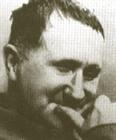Yesterday, March 8, was International Working Women’s Day. At the Royal Soul’s open mic, to commemorate this, I read the following poem by Adrienne Rich. I introduced the poem by describing the recent appearance in which four motions presented by Reverend Pinkney were denied by a kangaroo court. It echoed, for me, the idea of “our country moving closer to its own truth and dread/its own ways of making people disappear.” (Click the link to read the poem on the Poetry Foundation site, and to hear a recording of Adrienne Rich reading it)
What Kind of Times Are These
“What Kind of Times Are These”. © 2002, 1995 by Adrienne Rich, from The Fact of a Doorframe: Selected Poems 1950-2001 by Adrienne Rich. Used by permission of the author and W.W. Norton, Inc.
Source: Dark Fields of the Republic: Poems 1991-1995 (W. W. Norton and Company Inc., 1995)
In the dark timesWill there also be singing?Yes, there will also be singing.About the dark times.
To Posterity
1.
Indeed I live in the dark ages!
A guileless word is an absurdity. A smooth forehead betokens
A hard heart. He who laughs
Has not yet heard
The terrible tidings.
Ah, what an age it is
When to speak of trees is almost a crime
For it is a kind of silence about injustice!
And he who walks calmly across the street,
Is he not out of reach of his friends
In trouble?
It is true: I earn my living
But, believe me, it is only an accident.
Nothing that I do entitles me to eat my fill.
By chance I was spared. (If my luck leaves me
I am lost.)
They tell me: eat and drink. Be glad you have it!
But how can I eat and drink
When my food is snatched from the hungry
And my glass of water belongs to the thirsty?
And yet I eat and drink.
I would gladly be wise.
The old books tell us what wisdom is:
Avoid the strife of the world
Live out your little time
Fearing no one
Using no violence
Returning good for evil —
Not fulfillment of desire but forgetfulness
Passes for wisdom.
I can do none of this:
Indeed I live in the dark ages!
2.
I came to the cities in a time of disorder
When hunger ruled.
I came among men in a time of uprising
And I revolted with them.
So the time passed away
Which on earth was given me.
I ate my food between massacres.
The shadow of murder lay upon my sleep.
And when I loved, I loved with indifference.
I looked upon nature with impatience.
So the time passed away
Which on earth was given me.
In my time streets led to the quicksand.
Speech betrayed me to the slaughterer.
There was little I could do. But without me
The rulers would have been more secure. This was my hope.
So the time passed away
Which on earth was given me.
3.
You, who shall emerge from the flood
In which we are sinking,
Think —
When you speak of our weaknesses,
Also of the dark time
That brought them forth.
For we went,changing our country more often than our shoes.
In the class war, despairing
When there was only injustice and no resistance.
For we knew only too well:
Even the hatred of squalor
Makes the brow grow stern.
Even anger against injustice
Makes the voice grow harsh. Alas, we
Who wished to lay the foundations of kindness
Could not ourselves be kind.
But you, when at last it comes to pass
That man can help his fellow man,
Do not judge us
Too harshly.
translated by H. R. Hays (click the link to read on the Poem Hunter site)


Leave a comment